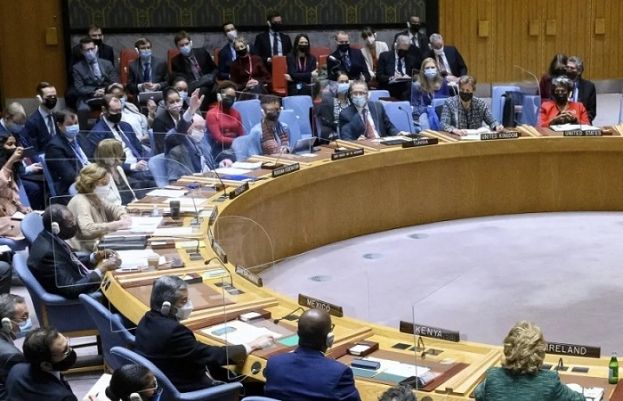
Spearheaded by Ireland and Niger, the proposal called for incorporating information on the security implications of climate change” so the council could pay due regard to any root causes of conflict or risk multipliers.
The measure also asked the UN secretary general to make climate-related security risks a central component of conflict prevention strategies and to report on how to address those risks in specific hotspots.
Prior council resolutions have mentioned destabilising effects of climate change in specific places, such as various African countries and Iraq. But Monday’s resolution would have been the first devoted to climate-related security danger as an issue of its own.
Some 113 of the UN’s 193 member countries supported the proposal, including 12 of the council’s 15 members. But India and veto-wielding Russia voted no, while China abstained.
Russia and India’s envoys said that the issue should remain with such UN groups as the Framework Convention on Climate Change. Adding climate change to the Security Council’s agenda would only deepen global divisions that were pointed up by last month’s climate talks in Glasgow, Scotland, the opponents said.
Positioning climate change as a threat to international security diverts the attention of the council from genuine, deep-rooted reasons of conflict in the countries on the council’s agenda, Russian Ambassador Vassily Nebenzia said, adding that the resolution would turn a scientific and economic issue into a politicised question and give the council a pretext to intervene in virtually any country on the planet.
The measure’s supporters said it represented a modest and reasonable step to take on an issue of existential importance.
Today was an opportunity for the council to recognise, for the first time, the reality of the world that we are living in and that climate change is increasing insecurity and instability, Irish Ambassador Geraldine Byrne Nason said. Instead, we have missed the opportunity of action, and we look away from the realities of the world that we are living in.
Niger’s Ambassador Abdou Abarry added: The force of the veto can block the approval of a text, but it cannot hide our reality.
No comments:
Post a Comment